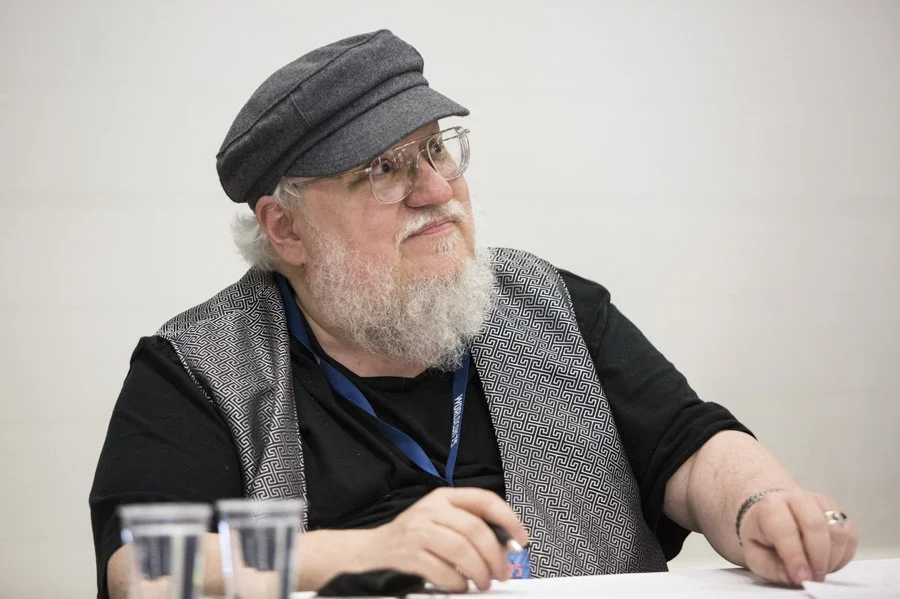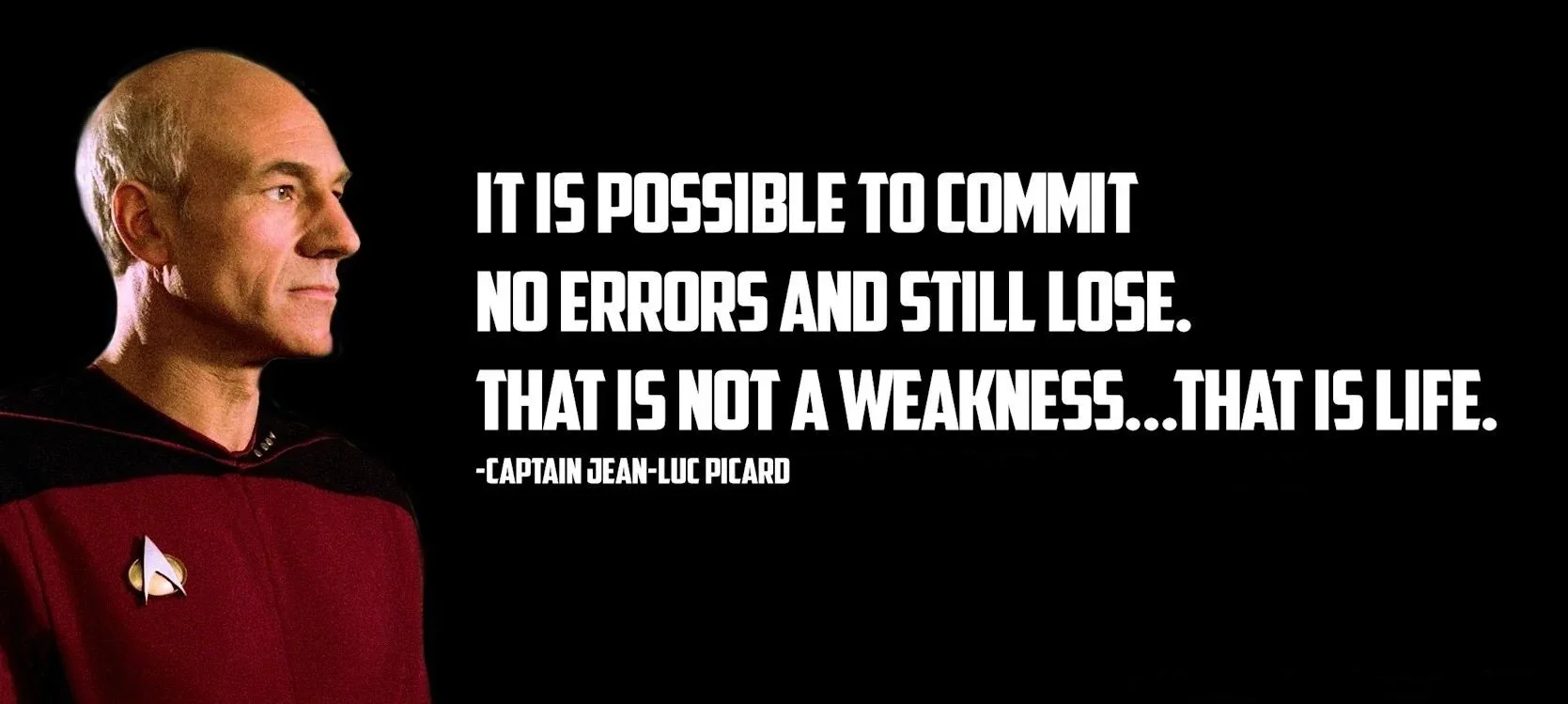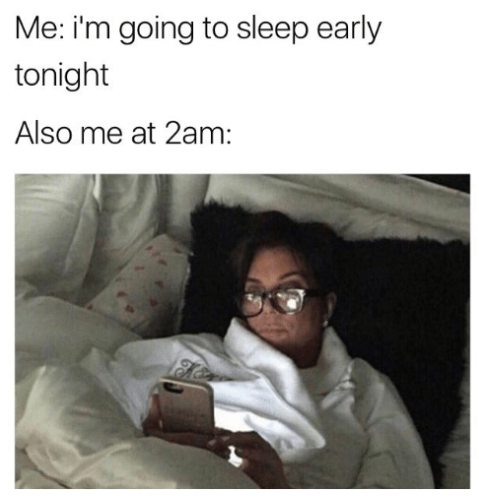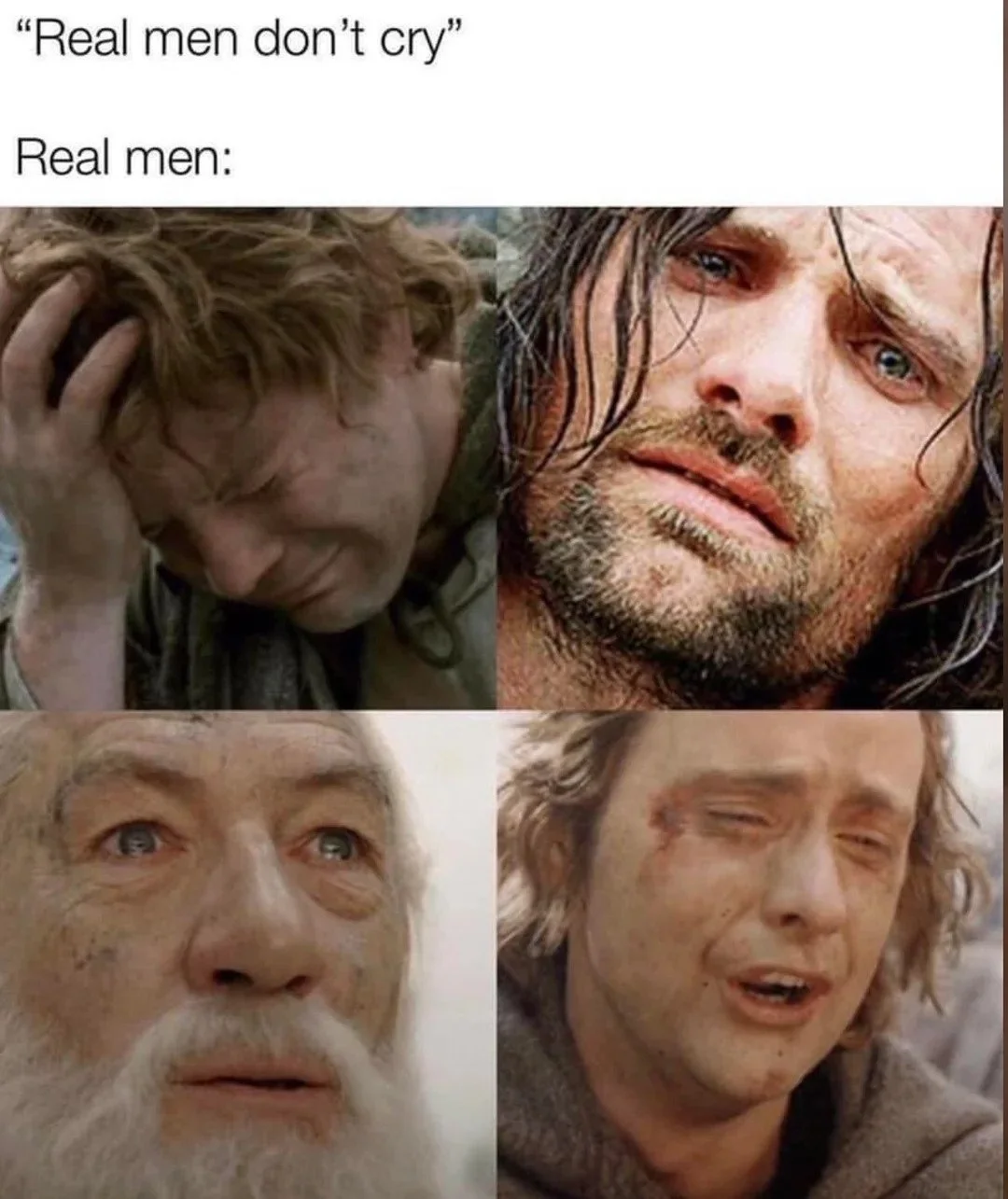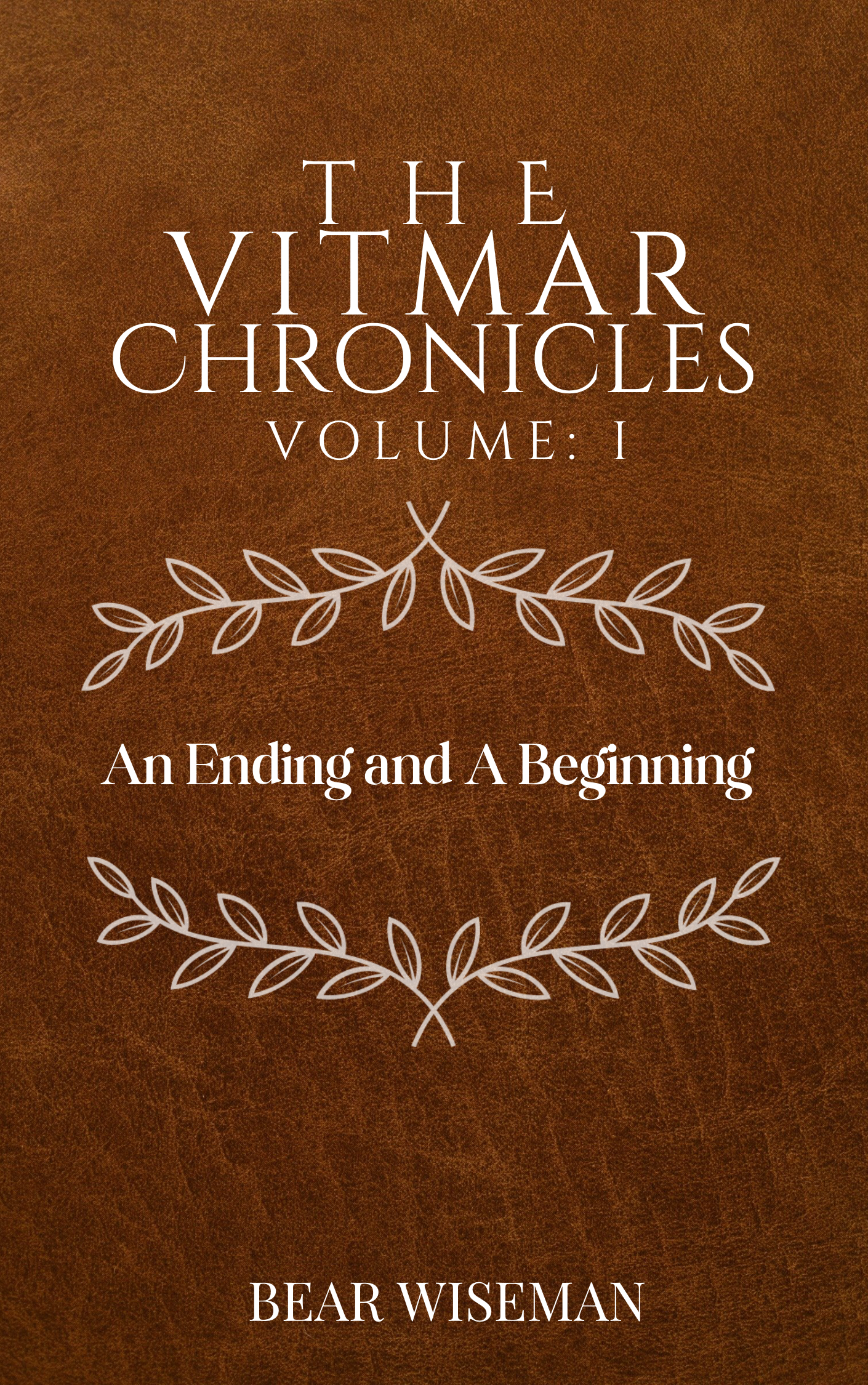Do We Need a Better Fantasy?
Author’s Note: As promised, here is an audio & video recording, and transcript of my essay, Do We Need a Better Fantasy?, which was written for Archipelacon 2 / Eurocon 2025. I hope you enjoy it!
Hello everyone! My name Bear Wiseman and I… am a fantasy lover.
While I live in Finland now, I grew up in Canada as an extremely dedicated geek. In case you don’t believe me, this is a picture of my bedroom when I was in high school.
I rest my case.
And it’s clear if you look behind me, you’ll see that little has changed over the last 20 years or so.
In fact, I love fantasy so much that I became a fantasy writer at the wee young age of thirteen. So I’d like to talk to you for a little while, at least, about something really dear to my heart:
Fantasy.
You see, the instant my mom gave me windows into worlds outside my own that allowed my imagination to run rampant with possibility, I was hooked. Whether it was the adventures of C.S. Lewis’ Narnia series, or the heroic journeys of the fellowship in Tolkien’s Lord of the Rings, or the wonder of She-Who-Shall-Not-Be-Named’s Harry Potter series, if there was magic or castles, you’d better believe that I’d give it a chance.
But I must admit that I’m a bit disappointed in what mainstream fantasy has become over the years. I hate to say it, but even though Peter Pan might not have grown up, the stories about kids like him did. The more fantasy I see showing up in popular media in traumatic greys and blacks, the more I feel like writers have forgotten that fantasy is often at its best when it is… fantastical.
Look at the definition of fantasy. If I’m fantasizing about something, generally speaking, I’m not dreaming about how rampant war and oppression are still in the year 2025. Indeed, the Oxford definition of “fantasy” reads, “the faculty or activity of imagining impossible or improbable things.” To fantasize, ergo, is to imagine the unrealistic or unlikely. But I feel like fantasy worlds in mainstream media these days are focusing too much on the realistic and not enough on the unlikely.
THESE ARE A FEW OF MY FAVORITE THINGS
So, just to set the scene a little bit, these are a few of my favorite things.
I’m not sure about you, but when I was young, the fantasy genre intrigued me, largely because it expanded the borders of what could be possible. For example:
Lizards could have wings…
Horses could have wings…
Fairies could have wings…
Indeed, I seemed to be quite interested in the idea that in some other world, I might be able to fly with much more ease.
Other things of great allure included magic. I really liked the idea of potions and spells and runes and charms… mystical things that were understood by only those who dared to delve deep in their world’s truth.
And I also loved quests! The real world had nothing for me in comparison to worlds where someone might spirit you away on some life-changing journey where you would probably save something, even if that something was yourself. And if I couldn’t focus on my school work, it was probably because I was thinking about studying somewhere that would teach me how to make potions, or where the history included dragon battles.
All of those things that made me fall in love with fantasy were based on the impossible. So why, then, does our fantasy media these days seem to be leaning more and more toward the hyper-realistic? When did fantasy stop being about whimsical imagination and start being about grimdark realism?
I have a few theories that might have contributed to this shift.
WHIMSY FELL BY THE WAYSIDE WHEN WE FELL IN LOVE WITH GRIMDARK
It’s a popular form of discourse online to blame George R.R. Martin for ridiculous things, so I want to get in on this. I want to blame George for doing such a good job of introducing grimdark grit to the world that we accidentally trapped ourselves in a vortex of misery.
And, of course, spoilers if you don’t already know the major plot points regarding the Stark family in his series, but I feel like, by now, you guys probably know how it goes.
Regardless of what we think of the show, it’s important for me to recognize that George is brilliant and everyone loved that show – in the beginning – for a very good reason. Why? Because he dared to do something few of us had ever even fantasized about: he eliminated the concept of “plot armor.”
I cannot begin to express how deeply that hooked me as a swords ‘n’ sorcery-loving teenager with undiagnosed ADHD, who got extremely bored with regularly-used tropes extremely quickly. Until that point in time, the majority of my experience with fantasy came from Disney movies, Tolkien’s books, and video games like Final Fantasy, where very few important characters die , at least before the end. This was common in most storytelling: the main character needs to at least survive long enough to make the ending poignant and dramatic.
As such, when George quite literally axed the hero of the story in the series’ first book, it was earth-shattering. And then, to double-down, he ruined any potential for a redemption arc by killing that character’s heir even more brutally! Nobody was immune to death in Westeros.
This is where George shone as an author of the fantastic: alongside cool shit, like dragons and white walkers and a very show-don’t-tell type of magic, he also gave readers and viewers a new fantasy, which was one where all of the rules get thrown out the window.
George’s writing personally gave me permission to write whatever the hell I wanted, no matter how far-fetched. Fantasy’s potential to exist beyond its own tropes got a lot more fantastical after that, and more exciting to explore by proxy. So, props to George for being a killer storyteller (pun 100% intended).
FANTASY NEEDED GRIMDARK TO SURVIVE IN MAINSTREAM MEDIA
We’ve had a lot of bad luck with fantasy over the years, so fantasy in television and film has a well-deserved reputation for being really low quality. Game of Thrones brought that quality up, at first, which was really exciting for us lovers of the genre. But the newfound popularity of such dark and gritty worlds occasionally feels like it lacks something…
There was a point in time, after all, when fantasy was almost exclusively associated with unimaginable and mythical things like rainbows, unicorns, dragons, leprechauns, elves, and other such whimsical creatures.
And people haven’t stopped enjoying those things, as we can see from how much people still delight in My Little Pony: Friendship Is Magic, or How to Train Your Dragon, or even Shrek.
I think it’s the goodie-two-shoes thing that I think puts most of us off, myself included. I love all of the above-mentioned things: fairies, dragons, magic, and all of it. But while fantasy once promised that being good-hearted would always bring you victory, this did not reflect reality, thus leaving us jaded and disappointed in predictable, unrealistic fantasy programming that had little to no depth or nuance.
So when all of the fantasy media we on offer is on the level of the adaptations like The Rings of Power or The Shannara Chronicles – where everyone and everything is really good looking and the stories are either too much or not enough? Let’s just say I understand why my favorite genre still gets a lot of flack.
We’re not naive enough, as a species, to believe in happily ever after anymore. Hard work doesn’t equal success in the way it used to. So for fantasy to survive at all, it had to get a little bit more realistic…
GRIMDARK IS NOT A PROBLEM, BUT GRIMDARK SETTINGS MIGHT BE
And this is where I think we’ve overcorrected a little bit.
Grimdark came into our lives all hot and realistic, and said that fantasy didn’t need to be all hearts and rainbows. Fantasy could be cool and badass and nuanced, too. Instead of perfect handsome princes, we have flawed, moody witchers, and I’d be a bold-faced liar if I said I wouldn’t take me a Geralt over a Florian any day. We want to fantasize about someone who matches our messiness, not someone who’s too perfect to live up to.
And this is why George R.R. Martin hit so hard. While shows like Battlestar Galactica and Star Trek covered this in the sci-fi sphere ages ago, fantasy had yet to learn that the good guy doesn’t always win.
GRIMDARK IS NOT A PROBLEM, BUT GRIMDARK SETTINGS MIGHT BE
And this is where I think we’ve overcorrected a little bit.
Grimdark came into our lives all hot and realistic, and said that fantasy didn’t need to be all hearts and rainbows. Fantasy could be cool and badass and nuanced, too. Instead of perfect handsome princes, we have flawed, moody witchers, and I’d be a bold-faced liar if I said I wouldn’t take me a Geralt over a Florian any day. We want to fantasize about someone who matches our messiness, not someone who’s too perfect to live up to.
And this is why George R.R. Martin hit so hard. While shows like Battlestar Galactica and Star Trek covered this in the sci-fi sphere ages ago, fantasy had yet to learn that the good guy doesn’t always win.
SOCIAL MEDIA REFLECTS OUR NEED FOR CONNECTION
It occurred to me that in the earlier times – for I was indeed born in the late ‘80s and am thus an internet boomer – that what we do on the internet has changed significantly. It used to be a place of unbridled creativity, but nowadays, I feel like a huge percentage of the reels I see are about our desperate need for connection and understanding.
We probably all know the disturbing psychology behind what getting constantly ranked by “likes” does to us by now, so I won’t get into that, but suffice to say that it wouldn’t be a stretch if these things were connected.
Surely you remember a common meme template from some years ago: “that moment when…”
I posit that that meme, and others like it, led the way towards the reels we see nowadays, which follow this format:
Me: doing something
Also me: doing something in complete contradiction to the previous thing
I feel like there’s a pattern shifting more and more towards a need for connection and validation. The more the real world tries to put us in boxes, the more we need to feel seen for who we really are.
We watch some reels. We feel seen, for just a moment. It’s enough to keep us going, breadcrumbing us through existence.
This is of course a very complicated subject in general, so I won’t go any further into it, but I wonder if our need for connection just so happened to hit us at a time when fantasy media started to show us a dirty mirror, so we were hooked on seeing our lives reflected back at us through the cracks.
HOW THIS RELATES TO FANTASY MEDIA
To me, there is a clear desperation for relatability, and this is how we fall into the trap that is the miserable, hopeless grimdark fantasy setting.
Feeling seen is such a huge coping mechanism in a continuously more difficult world to survive in. Fantasies are what give us hope when life gets tough. After all, big changes are slow and always face resistance. So when we watch Game of Thrones and think, “gawd, my boss is such a Littlefinger,” you feel seen for a moment, especially when online discourse agrees that Littlefinger was a total shyster.
But when it comes to fantasy, grimdark has honed in on oppression. That’s not a bad thing, because it’s important that we draw attention to how terrible these things are.
But returning again to House of the Dragon… it didn’t seem like that show had anything new to show us. Game of Thrones did that work already. And, in Game of Thrones, we dreamed that there would be peace in Westeros and that the eternal summer would come some day. In House of the Dragon… we already know things are gonna just get shittier before they get better, and then unfortunately they’re going to get shitty again…
We’ve returned to fantasy being extremely predictable, only now it’s totally hopeless too. That’s not what I came to fantasy for.
So grimdark definitely got us halfway there. It got us to feel seen. But what about feeling seen in a way that isn’t depressing as hell? What about feeling seen while dreaming of something better?
Now here’s where fantasy’s potential comes into play. I dabbled in thirteen stories about young heroes saving worlds that are full of war, misogyny, slavery, colonialism, and other forms of oppression. It’s easy to write stories like that, because we have infinite inspiration from which to pull, in both fiction and real life.
But as someone who, again, doesn’t tolerate tropes due to their predictability, I realized that I wanted something more human. Something that’s easy to relate to, without being yet another reflection of our misery. What if I lowered the stakes from global catastrophe to personal catastrophe? What if, instead of making a world that’s based on the worst of humanity’s history, I made one where people founded civilizations on principles of unity and compassion?
Because even the best fantasy series out there might be showing off alternative lifestyles and civilizations and races and species and cultures… but almost none of them show worlds that are inherently peaceful or unified.
That’s where my interests fixated when I began worldbuilding in my fantasy series, The Vitmar Chronicles. So here’s where my flagrant self-promotion begins, because I’d like to talk a bit about how I developed as a fantasy writer over the years and how I started writing worlds that were still fantastical, still deeply realistic and human, while developing settings that weren’t inherently oppressive, judgmental, or restrictive. I wanted to explore what life might be like if we were a bit more free to have adventures, and then survive them together.
I LIKE TO FANTASIZE ABOUT MEN BEING ABLE TO EXPRESS THEIR FEELINGS
One of the most important yet severely under-discussed topics on the rise in online literature is patriarchy and the way it oppresses – surprise, surprise – everyone! Including men!
After reading a lot about how much these endless pointless rules abuse us psychologically, I wanted to explore a world without that. I wanted to imagine a world where people didn’t need to be performing to other people’s standards all the time just to feel accepted and worthwhile.
Now, I’ve been weeding these values out of the story for ages at this point and I can’t promise that I’ve been perfect at it, but creating a world where people accept one another as fellow humans by default felt like a worthwhile pursuit.
Patriarchy, sadly oppresses a lot of emotional growth in storylines, because men aren’t allowed to have feelings and women are always told to check their feelings. This is why we still get drawn to grunting, moody men like Geralt in The Witcher.
But Geralt is actually a great example of how patriarchy fails men too.
Despite upholding many traditionally masculine standards, like being strong, stoic, skilled, and so on… Geralt also feels deeply. He feels love and pain and the deep sting of knowing that what he does is important, knowing that he has integrity, all while the world at large shows no respect. Geralt was a victim of false accusations and rumor-mongering, and it’s rare that he gets the notice and praise he deserves. He is very much a character that trudges forward, doing his best, surviving only on the validation that comes from knowing that he did his best. And that doesn’t seem to get him very far in the long run.
I think Geralt makes pretty much all of us feel seen sometimes.
So Geralt, alongside the tearful gentlemen from Tolkien’s fellowship were solid inspirations for men with feelings. Put them in a world where they were allowed to be both “manly” and emotional? Let’s just say the process itself brings me a lot of joy.
So what if fantasy didn’t just give us pain and perseverance, though? What if it helped us imagine healing, too?
That became the heart of the journey I wanted to create for my characters, Gabriel and Kaldor Vitmar, when I began writing The Vitmar Chronicles. Rather than covering a single quest or a sweeping revolution, their story explores life when the stakes are at the level of individual challenges, rather than societal.
And just because the level of oppression is low doesn’t mean there is no loss or conflict. In fact, exploring loss and conflict without systems of oppression became one of the most compelling reasons to write this world.
Available now!
A BIT ABOUT THE VITMAR CHRONICLES
The Vitmar Chronicles was born from a conversation between myself and a fellow metalhead fantasy-writing friend based on a common prompt: if we were characters in a fantasy story ourselves, what kind of story would it be?
I have to credit this old friend because that conversation was one of the ones that sticks with you for months until… something happens
You see, I had been expecting him to give me some sort of blustering tale of grand heroism. Instead, I was presented with a heart-wrenching and brutally human tale of deep love and immense grief.
What struck me most was the thought that such a story could exist without the need for life-altering cataclysms to be raging in the background. He didn’t frame this story in a world that was facing problems of its own. Love does indeed blossom without mortal danger creating desperation. One person could be grieving a life-altering loss while their neighbor goes about their day.
Just like real life.
This concept drew my attention to the way fantasy characters often go through harrowing, traumatic experiences and tend to just move past them, like it’s no big. There’s no emotional aftermath.
…Like that time Jon Snow died.
So… I started thinking about the concept of a hero. What did it mean to be a hero in a world without societal conflict? Shortly, I honed in on a new idea: you don’t need to save the world to be the hero of your own story.
With this fresh moral in mind, I thus abandoned my massive Final Fantasy knockoff series and dedicated myself entirely to crafting a saga that spanned a generation, following the real lives of these two brothers as they grew up in a world that was kind, but not without struggle. I wanted the story to show the potential within us to form beautiful bonds, and to show how those bonds shift and evolve as time goes on.
And if anyone dares to read this chronicle, I hope it leaves them wondering… does real life need to be this tough? And what sort of life would we be willing to fight for, if we believed a better world was possible?
THE GRIMDARK FILTER (™)
Now, I would never claim to be an expert on feminism or patriarchy, but I do think I got enough of a grasp to start shaping a world built on emotional equality.
As such, I’m going to do a quick reading of a scene from The Vitmar Chronicles, Volume II, (which — shameless plug — is coming out in August! The first version is what I called the Patriarchy Edition that has been run through the Grimdark Filter! Where tenderness is weakness, every conversation is a dominance contest, and emotional nuance goes straight out the window.
My goal here is to draw attention to how masculine intimacy is executed with regard to vulnerability, after one of the main characters has a panic attack:
“Gabriel? The host said you came running up here. You all right?”
Gabriel unlocked the door in silence. Kaldor stepped in, brows furrowed, warrior’s arms crossed tightly across his chest.
“You look awful. What happened?”
“I… something happened in the town center,” Gabriel muttered. “I met someone and… I felt something weird. Like at The Enchantry, only worse. I panicked and left.”
Kaldor blinked at him. “You ran away? From …a girl?”
Gabriel winced and sat down heavily on the floor. “I didn’t know what else to do. It felt… wrong. Intense.”
Kaldor sighed and pinched the bridge of his nose. “Okay, so you saw a girl and panicked. That’s not a crisis, you’re just infatuated. Please go talk to her, like a normal person. Who was she?”
“I don’t even remember much. Just her eyes, her hair, I think she might be fae or something-”
Kaldor snorted derisively. “Oh, come on. Now she’s a magical threat because she’s exotic? That’s not how this works. The likelihood of getting attacked by a ma’ita twice is astronomically low, so please move on.”
“I’m serious!” Gabriel snapped, but his voice cracked. “There was something off about her.”
“Yeah, well maybe you need to get a grip. You’re acting like a spooked deer.”
Gabriel looked down at his hands, still shaking.
Kaldor hesitated. “Look. It’s nothing. You’re weak in the knees for a pretty girl, just like the rest of us. If you’re really that worried, I’ll come with you. But you can’t keep spiraling every time you feel something.”
A knock at the door interrupted them.
“Gabriel Vitmar? You have a visitor.”
Kaldor raised an eyebrow and smirked. “And she came to you.”
Gabriel paled.
“Don’t make this into something it’s not,” Kaldor laughed. “Get up, splash some water on your face, and stop acting like the world’s ending.”
“I don’t know if I can.”
“You can,” Kaldor said flatly. “Go.”
Now, I’m not sure how you feel about that, but personally, I didn’t get the feeling that Kaldor did much to help. So here’s my fantasy of a world where emotional intimacy is the default and vulnerability is not scorned, but supported. This is the same scene, as it is actually written in Volume II [final text may be subject to change]:
Coming August 22nd, 2025!
“Gabriel? The host said you came running up here in a panic. Is everything all right? Can I come in?”
“Come in,” Gabriel replied and got to his feet to unlock the door. Kaldor entered, looking a bit frazzled.
“What’s going on? Is everything all right?” he repeated, warrior’s arms open in front of him.
“No, something happened in the town center,” Gabriel stammered. “I met someone… I felt… you know… like at The Enchantry? But so much stronger, when I looked in her eyes. I didn’t jump to any conclusions this time. I just… panicked. And I left.” He slumped onto the floor, leaning against the bed, staring blankly up at the ceiling.
“Okay,” Kaldor said, immediately understanding. “Something new. Something you haven’t faced before. It’s okay. We’ll figure this out together.”
“I’m doing… you know, where I can only imagine the worst possible scenario? I’m convinced she’s some sort of horrible fae monster, but I know the odds of that are low. So I need… I need you to tell me what she really is.” He took a deep breath and failed to steady his shaking hands.
Kaldor sat down next to Gabriel and put his arm around his elder brother. “Keep breathing. What else do you remember about her? Anything strange? Anything that stood out?”
“I… don’t remember.” Gabriel frowned, frustrated with himself. “She was shorter than me by a fair bit, almond-white hair — I guess that’s unusual — but everything else is a blur. The intense sensation from her eyes was so strong that I just… fled.”
“Well, perhaps the sensible solution would be to find her and talk to her,” Kaldor offered gently. “Then at least we can see what we’re up against.”
Gabriel inhaled sharply and nodded. “You’re probably right, though I don’t like the idea. But how would we even find her?”
Kaldor was about to reply when a knock came at the door.
“Gabriel Vitmar? You have a visitor.”
Gabriel froze. Kaldor snapped his gaze to his brother.
“No,” he said, cutting Gabriel off before he could speak. “Nope. Absolutely no. Extremely no. This is proof of exactly nothing.”
Gabriel lowered his protesting hand.
“Nothing at all. Don’t jump to conclusions. There could be a perfectly reasonable explanation.” He turned his head to the door and called out, “Thank you, we’ll be right down.”
“Kaldor…” Gabriel started.
“Breathe,” Kaldor said, and Gabriel obliged, exhaling slowly. “I’ll be with you. You’re not going to be murdered in a smokeroom lobby today.”
“You’re right, you’re right,” Gabriel said through several long breaths. “All right, let’s go.”
Personally? I like this scene better.
It did take a long time to eradicate the judgment, dismissal, and defensiveness, but I’m pretty satisfied with how it plays out overall: with two men communicating and working together to get through a situation.
This tonal shift in communication, then, cascaded into other aspects of the worldbuilding, where I could reform everything!
IN THE WORLD OF ILYNIKA, MAGIC IS THE EQUIVALENT OF TECHNOLOGY THAT ALREADY ALMOST ENDED THE WORLD
One of the other big changes I made to the world of TVC relates to where magic comes from.
To give credit where due once more, I have to give a shout-out to my partner. I asked him, aeons ago, what could be a source of magic that isn’t a standard trope. He offered the idea that magic could come from the multiverse. This piqued my interest once again.
Multiverses are no new concept to us geeks, but I hadn’t encountered them as a source of magic before… they were a setting, sure, but not a fuel. This gave me a vast sandbox to play in, with no tropes to guide my creativity.
In Ilynika, multiversal magic is basically a sustainable, unlimited energy source. But learning to use it is not unlike joining the military while simultaneously getting a PhD in the sciences. Magic is limitless in its possibilities, but volatile to experiment with. Magic shapes their tools, their travels, their conflicts, and their laws, and is thus heavily regulated and protected by people with deep insight into what is at stake.
A lot of the world history of Ilynika comes from pondering the sort of effect this magic would have on the world and its people. There are so many practicalities that one could use magic for, like a rune that puts wind in your ship’s sails on a still day.
I also started to wonder what the people who abused that sort of power would look like. If these people went to war, what would have been at stake?
…Probably the whole fabric of reality.
Then I started to fantasize about someone realizing that they had made a cosmic mistake… like fracturing the fabric of reality. I further fantasized about the type of person who would admit to making a mistake on that level. What if they even spearheaded the effort to fix what they had done?
The more I stripped oppression from society, and the less shame and fear acted as driving forces, the more characters were able to cut through the emotional noise and find productive solutions to life’s unexpected twists.
I STARTED CREATING SOCIETIES THAT DON’T TOTALLY SUCK
I didn’t know anything about political theory when I started writing The Vitmar Chronicles, but over the years, I learned enough about economies failing, governments harming their people, and cycles of injustice repeating that I began to just work backwards from what not to do.
I wanted my civilizations to be founded on an active desire to right some wrongs. For that, these people needed to have a good reason to start over.
…Perhaps because someone had recently fractured reality.
New societies were thus founded on generational trauma caused by a familiar sort of real-world oppression, and a resulting desire to start fresh after a calamity provided an opportunity.
Here are some settings that popped up in my worldbuilding:
Isidor, the main setting, is stewarded by the Patron of the Realm, someone who –much like Scott Lynch’s Gentleman Bastards – dedicates their life to learning as much about others as possible. Only in this case, it’s for the sake of serving the people, not crafting elaborate cons. Their job is to understand the needs of the community and advocate accordingly. The focus is on ensuring basic needs are met, like housing, food, and joy. Issues are brought to tribunals and discussed with experts, and are addressed through a lens of potential benefit versus harm.
The Merchant Isles are a heavily trade-oriented society with strong guilds and deep mutual respect for craft. It is one of the more indulgent cultures in the new world.
Miklyria is a settlement on a well-fortified island that didn’t have much in the way of resources. Thus, the new arrivals appropriated a lush neighboring island to harvest food, wood, and so on. Terysia was formed after Miklyrian laborers and a group of castaways rebelled against Miklyria’s rule and joined forces with the disturbed local nature spirits. Their society is completely communal due to constant invasion.
Nordvahl is the largest of the new societies, with multiple clans living integrated lives with animal familiars, treating one another collaboratively and with mutual respect. Several neutral spaces are scattered throughout, along with a few anarchic regions, and there’s no dominant hierarchy.
Each new society was an opportunity to explore what would happen if communities were served by their leaders, not controlled.
DREAMS CAN TAKE YOU FAR
Since we’re in the Nordics and most everyone here likes heavy metal, let me quickly reference a song from Marko Hietala, who once sang and played bass in a really small, unknown band that no one’s ever heard of called Nightwish.
I still do journalism sometimes
The song is called “Two Soldiers” and, to I’m sure no one’s surprise, it’s a song about war. In every chorus, the line sings “war will never change and this is who we are.” It’s an incredibly melancholy song about how mankind just never learns.
That is, up until the end, when the lyric changes the last time they sing it:
“All we have are dreams and dreams can take you far.”
This is the key idea behind this whole talk.
It’s great to relate to one another. It’s the best to connect. And if what we’re doing is commiserating with the struggles of life to help us survive it, then we need to do just that.
But I, personally, would also like to see the world start thriving. I don’t want to need to watch four hundred reels of “you got this girl” and “here’s what you need to know about [this mental health disorder] or [that chronic ailment]” and “calling out this type of societal oppression or current war”… All these reels, I don’t want to watch hundreds of them each day to feel seen and cared for.
I just want people to feel seen and cared for.
But if the only things we ever take in are miserable reflections of our lives, we’re going to forget to dream of something better. This is why I think it’s important for us fantasy writers to remember to keep dreaming about something that feels impossible… like worlds that are worth fantasizing about.
I CHALLENGE THEE, FANTASY WRITERS AND CREATORS!
For you creative types out there, I want to throw out a little challenge, but before I do that, I want to introduce you to someone that I don’t know, but I think you should pay attention to nevertheless.
This is
Amie McNee:
Amie McNee is a writer and her recent release is a book called We Need Your Art. If you go follow Amie on her socials – and you should, because her message is really important – she talks a lot about how it’s important to make art no matter what, and even and especially if it’s bad.
Why? Because the world needs hope and that’s what art and fantasy are. And if you’re worried that you suck, may I please draw your attention back to Tommy Wiseau? If you’ve got heart and love what you’re doing, people respond anyway, regardless of how technically good it is.
And for those of you taking up arms in the anti-AI war? This is your reason to start writing or drawing or whatever.
Now, I’m not going to tell you to write or create something hopeful or beautiful or magical. Instead, I’m going to tell you to write what’s inside that needs to come out.
But, as someone who once believed that they would spend their entire life polishing a thirteen-series story that borrowed way too much from my inspirations, I assure you that a creative mind-garden will flourish when tended with care. I thought I had only one idea for a story for many years. It turns out, I have more ideas than I know what to do with.
And it’s not just me. I’ve seen it happen to others around me. My friend Kathy Criswell wrote a book called Aphrodite Rising. She released it earlier this year. It’s so cool! It’s a beautiful story of love and grief in a fantasy setting. And she had such a great time writing that she’s writing more, and I couldn’t be more enthusiastic. I loved Aphrodite Rising!
So if you love fantasy, if you dream about other worlds, if you find yourself mapping out kingdoms in the margins of your notebook…
Don’t just dream. Write a story. Invent a culture. Draw a map.
And don’t limit yourself to just highlighting a problem… see if you can solve it while you’re at it.
Because maybe… just maybe… if enough of us do that, we’ll find the inspiration to start making some of these fantasies come true.
Thanks, and stay balanced, my friends! ❤️🐻



